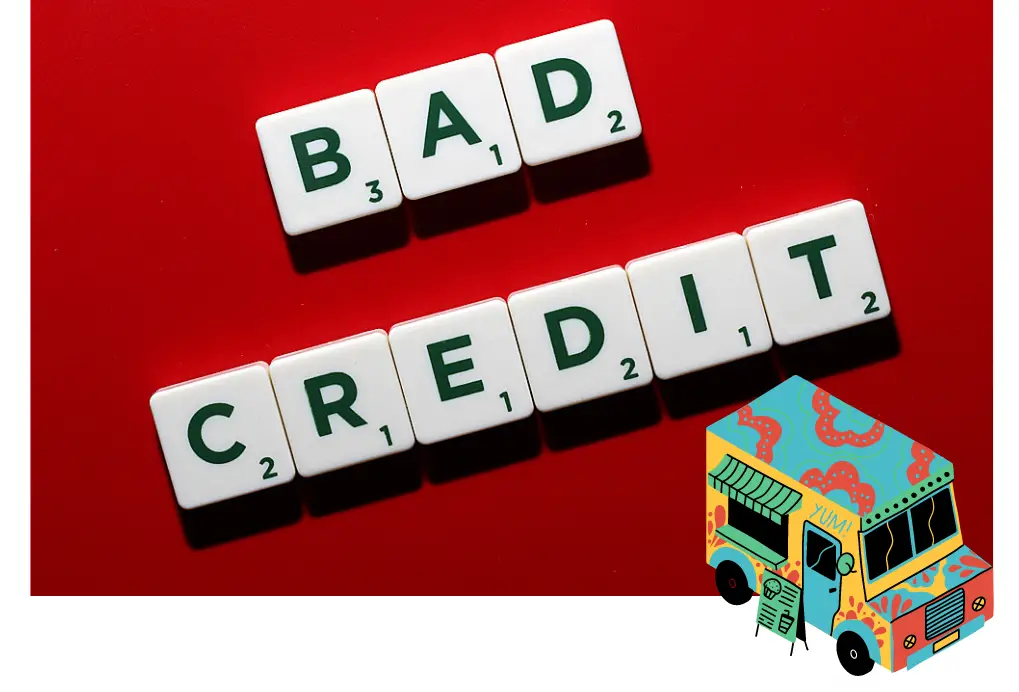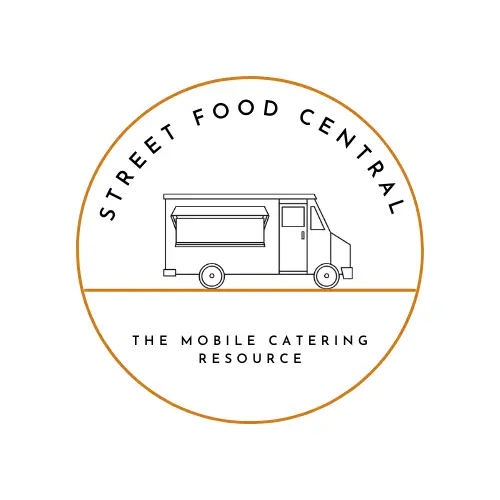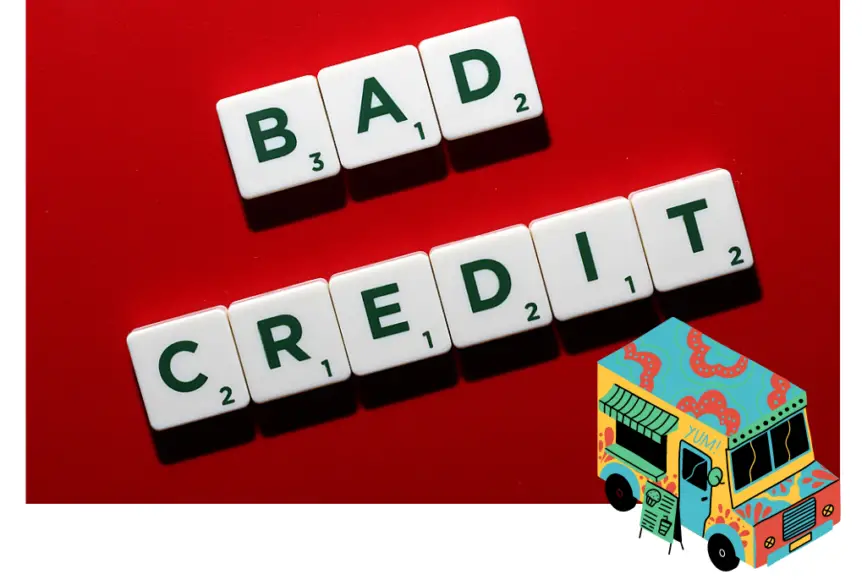See 9 ways you can improve bad credit and get financing for a food truck business

Whilst start-up costs for a food truck business are relatively low compared to a brick-and-mortar cafe or restaurant you still need a certain amount of financing to get up and running.
This can be especially difficult if you don’t have your own funds and need to get a loan but have no credit history or a bad credit score (also known as a FICO score).
However, there are some things you can do to get food truck financing with bad credit.
To get a loan with bad credit you can improve your credit score over time by doing things like paying down existing debt, getting a co-signer, or applying for government-backed loans that have more favorable terms and less restrictive eligibility criteria for people with bad credit.
There are also a number of other things you can do to get financing for a food truck business with poor credit which I will go into in more detail in this article.
So read on for 9 Tips To Get Food Truck Financing With Bad Credit…
Contents:
- Check your credit score
- Improve your credit score
- Do a soft search (pre-qualify)
- Use your own funds
- Get a co-signer
- Apply for government-backed loans
- Apply for a grant
- Personal loans for bad credit
- Credit cards for bad credit
- Key takeaways
1. Check your credit score
Credits scored can fluctuate based on a number of different factors which means it’s worth doing a credit score check based on your current circumstances before you apply for any loan (if you haven’t done so already).
You may be surprised, that your credit score has improved since the last time you did one.
There are a number of websites you can do a free credit check on such as the Annual Credit Report, Experian, and Equifax amongst others.
2. Improve your credit score
If you get a credit score (also known as a FICO score) under 670 this means that you do indeed have a bad credit rating in the eyes of financial institutions which will impact the number of banks that will lend to you or the amount of interest you will pay.
However, there are a number of things you can do to improve your credit rating over time to get financing for your food truck business.
- Pay bills on time
- Pay down existing debt
- Keep existing credit limit low
- Avoid moving around a lot
- Get a credit card builder (a specialist card designed for people with bad credit to improve their credit score)
Related sources:
3. Do a soft search (pre-qualify)
A soft search (also known as a pre-qualify loan) is where you apply for a loan and the lender lets you know how likely it is you will get approved before you do a hard search based on your credit file.
That way your credit rating won’t be impacted even further by getting a loan refusal based on an actual application. It’s also a quicker process than a lengthy loan application.
You can do a soft search for loans on sites like Finance Freedom and Regional Finance.
Related sources:
4. Use your own funds
The best thing you can always do when starting a food truck business is to fund as much of the start-up costs such as the food truck and equipment with your own funds.
This not only minimizes the risk for you in terms of harming your credit score even further but increases your chances of getting a loan with bad credit as you will more likely need less finance than you otherwise would.
I know not everyone may have this option, hence they are on this article looking for tips on how to get finance for a food truck with bad credit, but it may be worth delaying any start-up whilst you can raise some cash from a job or side hustle.
5. Get a co-signer
A co-signer is someone like a family member or friend who has a better credit rating than you and can make a joint application with you for financing. They take full responsibility if the loan is defaulted on.
This helps to improve your chances of getting accepted as it would be down to the co-signer to repay the loan which reduces the risk for the lender.
Related sources:
6. Apply for government-backed loans
Governments have pots of money that are often allocated to local governments to encourage entrepreneurship. This is then distributed out to the wider economy as small business loans to new start-up businesses such as food trucks.
And because they are government-backed they have more favorable lending criteria for people with bad credit which means getting approval may be easier than with traditional lenders like banks.
For example, the Small Business Administration (SBA) can offer up to $50,000 for things like equipment, supplies, inventory, and working capital through their “Microloan” scheme.
Related sources:
Related articles:
- How To Get Financing For A Food Truck
- 11 Tips To Start A Food Truck Business With No Money
- 14 Companies That Specialize In Food Truck Finance
7. Apply for a grant
There are several institutions out there, such as government, non-profits, and corporate entities that provide a range of grants for small businesses for things like start-up costs for equipment.
For example, the California Dream Fund which is a local government grant offers up to $10,000 for new businesses through their “Micro-Grant” scheme. Nav, which is a financial tech company also runs a contest where the winner can get up to $10,000 to expand their business
This is, therefore, a good option as grants are not based on a credit score, but instead on how viable your business is. Another added benefit is there is no principal or interest to pay back like you would with a loan.
Related sources:
Related articles:
8. Personal loans for bad credit
Whilst most lenders won’t approve a loan application for people with a FICO score under 670 there are a number of loan providers that specialize in personal loan financing for people with a credit rating of between 580 and 600.
There are a number of personal loans available to people with bad credit:
- Secured personal loans for bad credit – Requires the lender to put up an asset as collateral such as a home to back the loan. This reduces the risk for lenders which means lower interest rates and fewer eligibility requirements.
- Unsecured personal loan for bad credit – Don’t require any assets to secure the loan. However, this makes it riskier for other finance providers which means higher interest rates and stricter eligibility requirements.
- Home Equity line of credit (HELOC) – Use some of the equity in your house to get a line of credit.
- Auto Loans for Bad Credit – Can use your car to back the loan. However, lenders can repossess your car if payments are not fulfilled.
You can see a list of low-credit score lenders here.
Related sources:
9. Credit cards for bad credit
Credit cards for bad credit are specifically designed for people with low credit scores (below 600 FICO score) and typically come with low credit limits of between $200 and $1500.
Capital One Platinum Secured Credit Card offers cards to people with no credit history and Mission Lane credit card offers cards to people with low credit scores between 300-670.
This type of financing for a food truck business might not cover all of the start-up costs such as the food truck itself, but it may cover some of the equipment needed for your operation.
Related sources:
Key takeaways
The worst thing you can do if you have poor credit is to finance more debt than you are able to repay in the long term if your new food truck start-up doesn’t go to plan.
The best thing to do is build your credit rating over time and either find the bulk of the money yourself through family, friends, or from a job or side hustle and then borrow a small amount from a lender.
If this is not an option for you then go for a government-backed loan which has favourable terms and fewer eligibility requirements for people with bad credit. Even better apply for a grant that doesn’t have to be paid back.
Remember new ventures are also risky so keep your risk low and don’t borrow what you cannot afford to pay back.
Gavin D is the founder of Street Food Central and Tru Foo Juice Bar Co. and has worked in the mobile catering industry for over 7 years.

